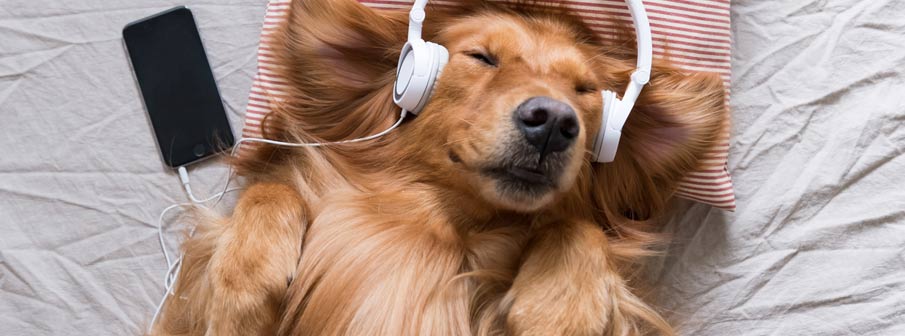
Music can be composed to resonate with any emotion. From gloom to glee - some of it has the incredible ability to completely change the way we feel in an instant.
Sleep music has long fascinated me. The idea that sounds can have more than just a mental effect on a person is quite astounding.
But what really is sleep music, how does it work and why does it affect people in different ways? I’ve been eager to find out and I’m guessing you are as well.
What is Sleep Music?
Sleep music is not necessarily composed with the intention of sending the listener to sleep. Come to think of it, wouldn’t that be a musician’s worst nightmare? Imagine selling out a concert hall, playing some new material and finding that half the audience has drifted off!
With that said, music made to induce a sense of relaxation has been around for a long time. It’s believed that Celtic, Native American and Indian stringed instruments are particularly effective at helping people to relax.
How Sleep Music Works
It’s believed that music of around 60 bpm is the most effective at causing alpha brainwaves. Alpha brainwaves are frequencies from 8 - 14 cycles per second. These are the waves we produce when awake and relaxed.
So, how when does sleep music induce sleep? We produce what is called delta brainwaves when asleep. Delta brainwaves are a frequency of 5 cycles per second. In order to bring these about, it is thought that a person can spend around 45 minutes listening to sleep music, whilst in a relaxed position.
The effect on our brains whilst listening to sleep music is believed to be as effective as certain prescribed medications.
Sounds We Find Relaxing
Everybody is unique and one of many things that makes us so is our likes and dislikes.
I personally enjoy the smell of petrol. However, I’m willing to bet that there are many people who find that same odour repulsive.
Similarly, I despise the taste of celery. Yet, I’ve often found people argue that celery is virtually tasteless.
Thank goodness we’re not all carbon copies of one another. If that were the case, this existence of ours would be very mundane.
Our likes and dislikes also extend to the sounds we prefer. This is clear by the various tastes in music that people have.
We’ve spoken about sleep music, but what about sleep sounds? You may find it strange, but I find the sound of a vacuum cleaner very soothing. The same applies to hairdryers and electric fans. In fact, I used to with an electric fan on most nights regardless of the room temperature. Without that sound, I seriously struggled to sleep.
While some people prefer complete silence, many prefer listening to a variety of unique sounds as they sleep. A few examples include -
- Rain & Thunder.
- Ocean Waves.
- Crackling Camp Fires.
- Airplanes.
- Busy Cities.
- Running Water.
And that’s just the beginning. Sleep sounds are surprisingly popular and there’s plenty of choices. Just take a look at how many reviews this app on the Google Play Store has.
Sleep Sounds Vs Sleep Music - Why We Like Certain Sounds
Although a nice piece of music can make me drift off, I’ve always preferred sleep sounds over sleep music. We’ve already looked at the science behind sleep music, but why do we enjoy certain sounds?
The fact that the sound of a vacuum cleaner makes me sleepy once came up in conversion between my mother and I. Oddly enough, she told me that as a baby, when I was particularly restless, the sound of the vacuum cleaner would soothe me. It was even an effective trick to get me to calm down when the usual methods failed.
Considering this, I’m led to believe that the reason we enjoy some sounds can be rooted in our childhood experiences.
The same principle applies to certain smells we enjoy. Many of us have a smell that immediately invokes a sense of nostalgia. Just one whiff and we’re immediately transported back to our childhoods. It could be the smell of Play-Doh or the aroma of pine from a real Christmas tree.
To go deeper into this, it has been suggested that white noise (created by the likes of vacuum cleaners and hair dryers) can be compared to the sounds we heard whilst in our mothers’ wombs. White noise has proven in tests to be a useful tool in settling difficult babies. It would have been noisy throughout the earliest periods of sleep we ever had which may be why some people find white noise aids in their sleep.
Aside from intrauterine experiences, another reason people enjoy sounds such as white noise may be due to the sound masking effects. Introducing certain sounds can help to mask unwanted noise pollution. This can be effective whether asleep or awake. Sound masking is something that is often considered and implemented in public areas and private office buildings.
Improve Your Sleep with a New Mattress
Whether you enjoy sleep music or not, nobody can deny the benefits of a good quality memory foam mattress. If your current mattress has seen better days, why not upgrade it? We stock a variety of expertly designed mattresses to help improve your sleep. Take a look at our cosy memory foam mattress range.
